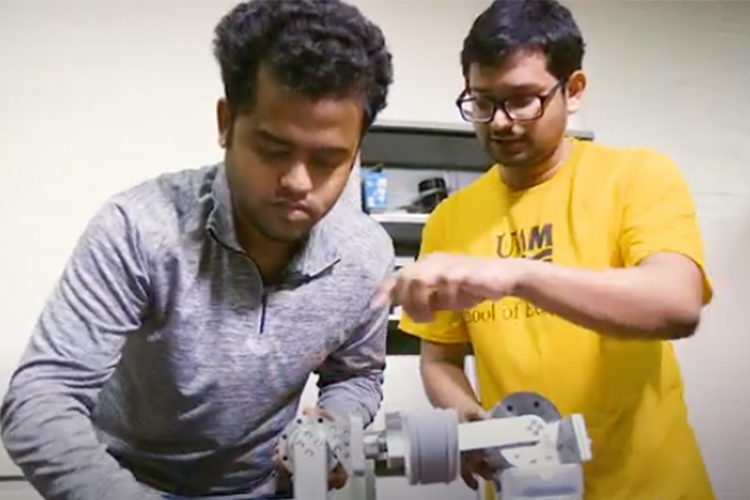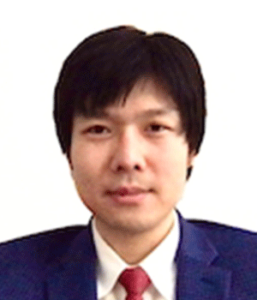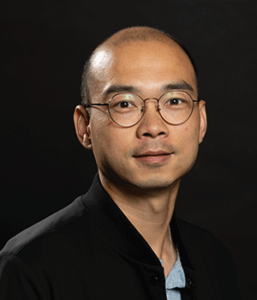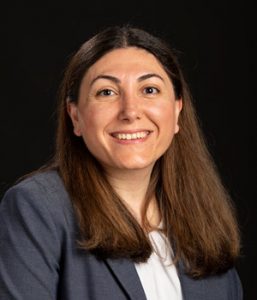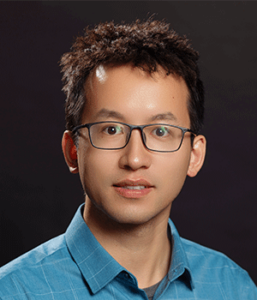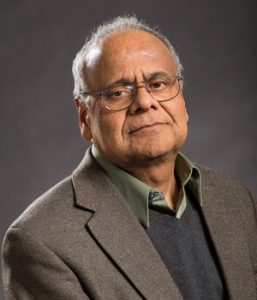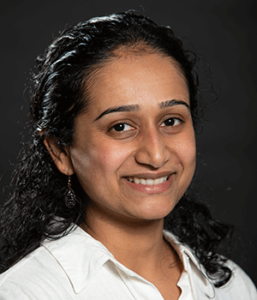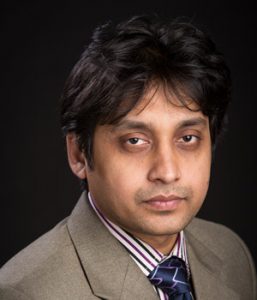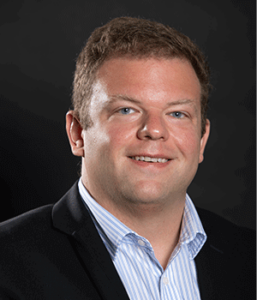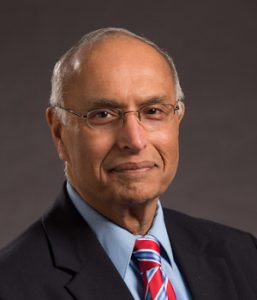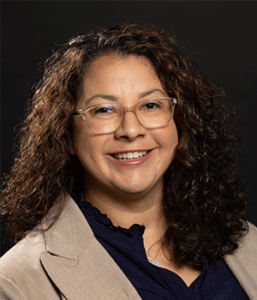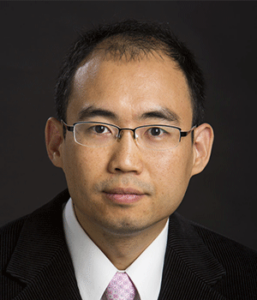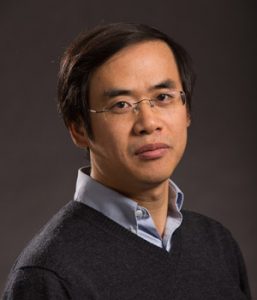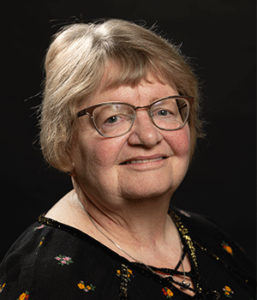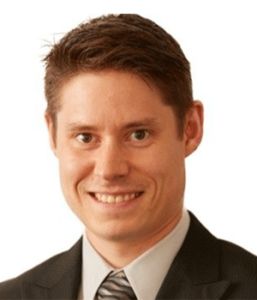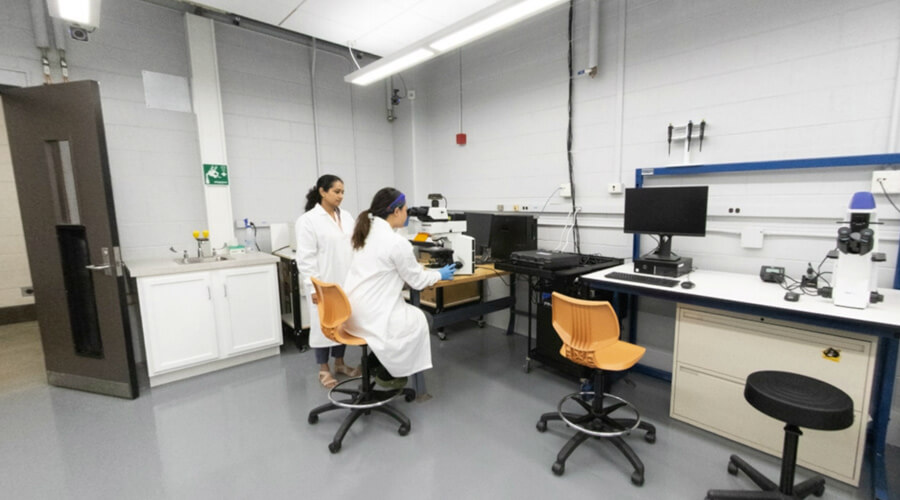Engineering MS: Biomedical Engineering MS
Whether you intend to pursue research or seek professional advancement with higher pay and job security, now is an excellent time to pursue a biomedical engineering master’s degree.
UWM, one of Wisconsin’s two R1 research universities, is located in one of the largest manufacturing and industrial regions in the nation. You will benefit from our long-standing collaborations with this vibrant community and our role in working with them as they transition to an Industry 4.0 economy.
The Master of Science degree in Engineering with a concentration in Biomedical Engineering is a far-reaching discipline and our flexible program welcomes those whose undergraduate degrees were in biomedical engineering, other fields within engineering, or health and natural sciences.
Qualified UWM undergraduate students can apply to begin this program during their senior year by participating in the integrated BS-MS Program.
Program Type
Master’s
Program Format
On Campus
What to Expect
The Biomedical Engineering master’s program at UWM is designed for both working professionals and aspiring researchers. Students may choose either a thesis option or a non-thesis option and must include graduate level biomedical courses. See the academic catalog for specific requirements.
The thesis option allows our biomedical engineering master’s degree students to pursue advanced coursework leading to an original research project, supervised by a faculty advisor. Naturally, we encourage students to pursue the development of a thesis. However, if you have prior engineering or scientific work experience and are seeking an MS for professional advancement, the non-thesis option is a great alternative that requires additional coursework in lieu of a thesis.
Earning your MS at UWM is a smart investment in your future. Nearly all of our graduates (93%) complete highly paid internships or Co-ops during their time with us, and 91% land a job or commit to PhD programs before graduation.
Many students choose to incorporate Teaching Assistantships (TAs) or Research Assistantships (RAs) during their graduate study which helps to fund their education while also building leadership skills. Assistantship decisions are made by the academic departments only after an applicant has been accepted into the program.
More Information
Contact the College of Engineering & Applied Science Graduate Programs Office.
We’re a top tier R1 research university and our biomedical engineering master’s degree students have the opportunity to work with faculty engaged in cutting-edge research in areas such as:
- Biomechanics
- Biorobotics
- Bone Healing
- Intelligent Assistive Devices
- Medical Imaging
- Medical Instrumentation
- Rehabilitation Engineering
Research Labs
Our college has a wide range of faculty led labs that perform cutting edge research. For a full list, click here.
Faculty
- Visiting Assistant Professor, Biomedical Engineering
- baox@uwm.edu
- 414-251-8852
- Engineering & Mathematical Sciences E309
- Assistant Professor, Biomedical Engineering
- Advisor, UWM Biomedical Engineering Society (BMES)
- dabaghme@uwm.edu
- 414-251-7573
- Engineering & Mathematical Sciences
- Visiting Assistant Professor, Biomedical Engineering
- gehe@uwm.edu
- Engineering & Mathematical Sciences 845
- Professor, Biomedical Engineering
- Department Chair, Biomedical Engineering
- Professor, Electrical Engineering
- misra@uwm.edu
- 414-229-3327
- Engineering and Mathematical Sciences E-314
- Assistant Professor, Biomedical Engineering
- Director, Premnath Lab
- premnath@uwm.edu
- 414-229-2634
- Engineering & Mathematical Sciences 1015
- Richard and Joanne Grigg Associate Professor, Mechanical Engineering
- Department Chair, Mechanical Engineering
- Affiliate Professor, Computer Science and Biomedical Engineering
- Switzer Research Distinguished Fellow
- rahmanmh@uwm.edu
- 414-251-8406
- University Services & Research Building (USRB) 201D
- Assistant Professor, Biomedical Engineering
- Director, Advanced Mobility Biomechanics Lab (AMBL)
- jrrammer@uwm.edu
- 414-251-6160
- University Services & Research Building (USRB) 201P
- Distinguished Professor, Materials Science and Engineering Department
- Distinguished Professor, Biomedical Engineering
- Distinguished Professor, Mechanical Engineering
- Director, Center for Advanced Manufacture of Materials
- prohatgi@uwm.edu
- Engineering and Mathematical Sciences 574
- Richard and Joanne Grigg Professor of Mechanical Engineering, EMS Office 1080
- Affiliate Faculty of Biomedical Engineering and Rehabilitation Science & Technology
- slavens@uwm.edu
- 414-229-6933
- Accelerator Building, Innovation Campus 135, Lab 140
- Associate Professor, Mechanical Engineering
- Associate Professor, Biomedical Engineering
- ysung4@uwm.edu
- 414-251-8147
- Physics 333
- Professor, Computer Science
- Professor, Biomedical Engineering
- Director, Big Data Analytics and Visualization Lab
- yuz@uwm.edu
- 414-229-2960
- Engineering & Mathematical Sciences 327
Advising
- Advisor, Graduate Programs
- Computer Science, Electrical Engineering, Biomedical Health Informatics
- crary@uwm.edu
- 414-229-7267
- Engineering & Mathematical Sciences E379
- Advisor, Graduate Programs
- Civil/Environmental Engineering, Mechanical Engineering, Biomedical Engineering, Industrial/Manufacturing Engineering, Materials Science & Engineering
- rpackard@uwm.edu
- 414-251-8543
- Engineering & Mathematical Sciences E379
UWM is proud to be one of only two R1 research universities in Wisconsin. We’re also a top externally funded institution with robust opportunities for teaching and research assistantships. Partners that support our important research include:
- National Institute for Health
- National Academy of Sciences, Engineering & Medicine
- National Science Foundation
- Medical College of Wisconsin (confirm)
- Other?

